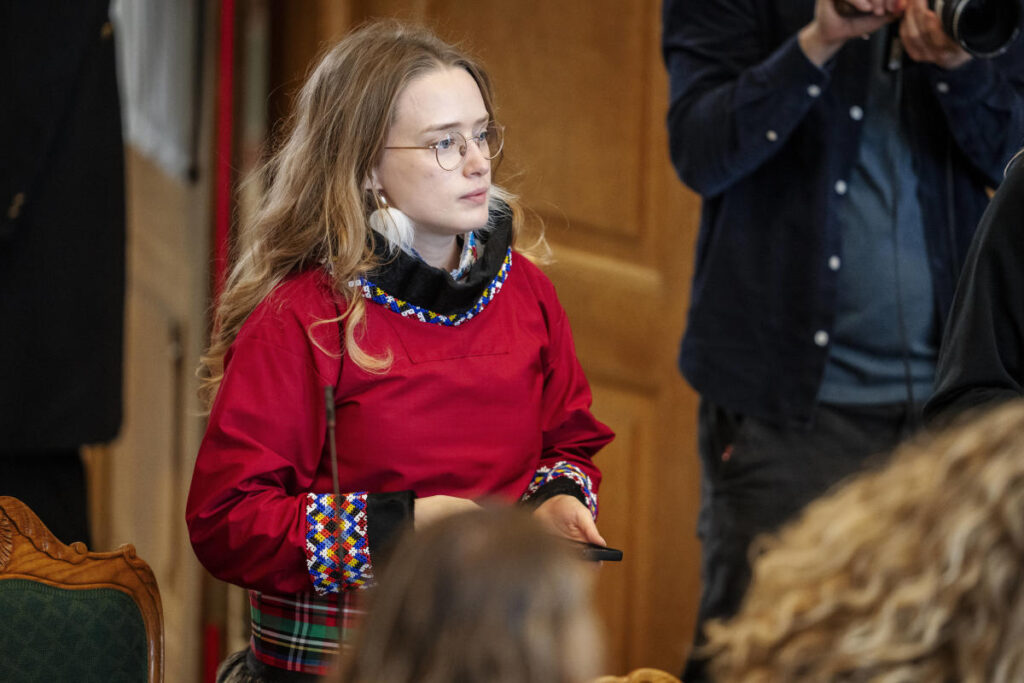COPENHAGEN, Denmark (AP) — A lawmaker representing Greenland in the Danish parliament was asked to leave the meeting stage because she planned to speak only in Greenlandic — the Inuit language of the sparsely populated Arctic island — leaving non- understanding legislators were frustrated and the tense relations within parliament were emphasized. the Danish empire.
Aki-Matilda Hoegh-Dam, from the social democratic Siumut party, is at the center of a debate over whether lawmakers from Greenland and the Faroe Islands can speak in their own language before the Danish parliament. The two semi-independent areas that are part of the Danish Empire each have two seats in the Folketing in Copenhagen.
During a traditional debate day Thursday, where party political affairs spokespersons explained their party’s line, Hoegh-Dam took the stage and said she would speak only in Greenland’s official language. She had distributed a translation of her speech to the members of the meeting in advance.
Parliament Speaker Søren Gade told her that “one cannot debate a speech… if the speech is not also delivered in Danish” and asked her to resign. He added that she was informed last year that Greenlandic and Faroese parliamentarians could speak in their local language if they translated it into Danish themselves immediately afterwards. Hoegh-Dam said she had no intention of doing so.
Danish, taught in Greenland’s schools, is the language of the Copenhagen Assembly. Hoegh-Dam demands simultaneous interpretation. Gade has said the Folketing is not prepared for that, but Greenlandic and Faroese lawmakers could get extra money to hire translators.
The other Greenlandic lawmaker in Denmark – Aaja Chemnitz of the left-wing Inuit Ataqatigiit – spoke in Danish on Thursday evening. Later, her party said it supported Hoegh-Dam’s position.
Greenland was a colony under the Danish crown until 1953, when it became a province in the Scandinavian country. In 1979 the island was given its own government, and thirty years later Greenland became a self-governing entity. But Denmark retains control over justice, foreign affairs and defense affairs. However, relations between the two are tense. partly because of revelations about misconduct by the Danish authorities in Greenland in the 20th century.
The movement for the vast island’s independence has intensified over the past two decades. Greenland, which has a population of about 57,000 and whose main export is fish, is still heavily dependent on Denmark for annual financial support, which is budgeted at 4 billion kroner (almost $600 million) in 2024.

